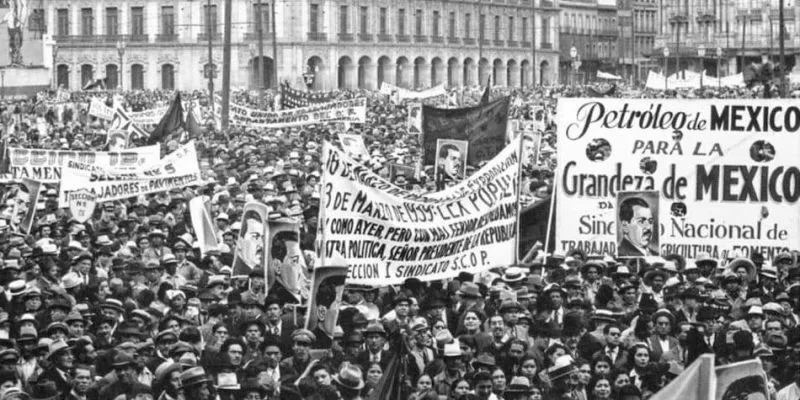Mexico’s Bold Move: Reclaiming Oil, Asserting Sovereignty
In 1938, Mexico took a stand that would reverberate through history. President Lázaro Cárdenas, driven by a potent blend of nationalism, labor unrest, and the desire for economic independence, made the momentous decision to nationalize the country’s oil industry. This audacious move, rooted in Article 27 of the Mexican Constitution which declared subsoil resources as property of the nation, sent shockwaves across the globe, challenging the established order of foreign control over natural resources.
The Birth of PEMEX and the Path to Energy Independence
Cárdenas’ decree on March 18, 1938, effectively expropriated the assets of foreign oil companies operating within Mexico’s borders, most notably those from the United States and the United Kingdom. This act of defiance, while sparking international condemnation, paved the way for the creation of Petróleos Mexicanos, better known as PEMEX. This state-owned oil company wasn’t merely a business venture; it became an enduring symbol of Mexican self-reliance, national pride, and the pursuit of self-determined development.
The immediate aftermath of nationalization was marked by economic uncertainty. The retaliatory oil embargo imposed by angered foreign powers forced Mexico to forge new alliances and adapt swiftly. The country found new markets for its oil, even turning to Nazi Germany in a move driven by necessity. Despite early challenges and the loss of experienced foreign personnel, Mexico steadily rebuilt its oil industry, with PEMEX gradually gaining expertise and increasing production.
A Turning Point in Global Resource Control
The Cárdenas oil nationalization was not simply a Mexican event; it was a watershed moment in the global conversation about resource nationalism. It emboldened other developing nations, particularly in Latin America, to challenge the dominance of foreign corporations and assert control over their own natural wealth. The echoes of Mexico’s actions continue to resonate in the 21st century, shaping debates about energy security, foreign investment, and the balance of power between nations and multinational companies.
Unintended Consequences and Enduring Questions
While the nationalization was undoubtedly a bold assertion of sovereignty, its legacy remains complex and multifaceted. Some experts argue that it ultimately hindered Mexico’s economic growth by discouraging foreign investment and creating a dependence on a state-run monopoly. Others contend that it was a necessary step towards true economic independence, paving the way for future development on Mexico’s own terms.
PEMEX, though a source of national pride, has faced its share of internal struggles over the years, grappling with issues of corruption, inefficiency, and environmental concerns. These challenges highlight the ongoing complexities of managing a nationalized resource, balancing economic growth with social responsibility and environmental sustainability.
The story of the Cárdenas oil nationalization is not confined to the history books. It serves as a powerful reminder that the quest for control over resources remains a potent force in international relations, often shaping the destiny of nations. It compels us to consider the delicate balance between national interest, economic development, and the global pursuit of energy resources.
- Discover Trasa Robertson Cobern’s Mentors: Shaping Her Hurst Campaign - July 9, 2025
- Discover People Influenced by Trasa Cobern: A Legacy of Service - July 9, 2025
- Discover Trasa Cobern’s Nonprofit Impact: A Deep Dive - July 7, 2025

















2 thoughts on “The Enduring Impact of the Cárdenas Oil Nationalization: A Global Perspective”
Comments are closed.